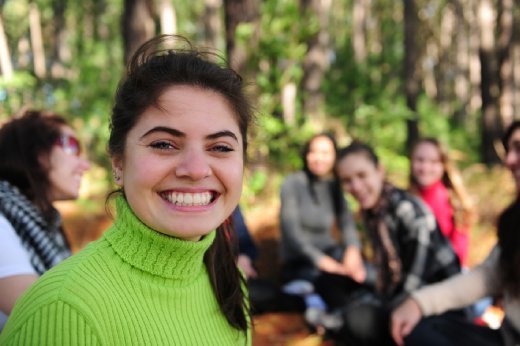Let’s face it: if you don’t speak the language where you’re traveling, then you’re living in a world of your own.
Of course you can take in the architecture, observe interactions in the street by interpreting gestures and expressions, but you’ll never get to the heart of the experience. Just imagine a backpacker from another continent, exploring your hometown with only a guidebook to help them – what chance would they have of understanding the place you live in?
But for many travelers, learning another language is unimaginable; growing up in countries where English is all they see and hear, the prospect of learning another tongue seems as remote as learning to play the violin. Memories of dull French lessons at school haunt the idea and there’s something vaguely embarrassing about learning how to talk all over again like a child.
But picking up a new language can be done fast, for free and great fun.
Linguists argue about the best methods for learning and different styles suit different people – some are happier learning phrases that they can start to use straight away, whereas others will feel frustrated unless they can really get to grips with the grammatical rules that give structure to a language, like a skeleton. But there are several tricks and tools that will help anyone learn fast.
1. Learn 5 Words a Day
No one can teach you another language, they can only help you learn. It’s up to you to have a DIY attitude and take time every day to learn. Buy a little notebook to write new vocabulary in and learn 5-10 new words every day, testing yourself while you’re on the bus or before you go to sleep. Languages are about words more than anything so start now and within a couple of months you’ll know most of the day to day vocabulary that you’re likely to encounter.
2. Watch Movies
In Portugal young people often have a reasonably good grasp of English whereas across the border in Spain the general level is a lot lower - why? Because in Portugal they watch films and TV from England and the US in the original language with subtitles to help them understand.
Watch movies made in the language you want to learn with English subtitles. Then look up the script on the internet and try to make sense of the dialogue with the help of a good bilingual dictionary. Then watch the move again with the subtitles in the same language you want to learn and see how much you can follow.
3. Immersion
You can learn a language gradually by putting aside some time each week but you’ll go much faster if you immerse yourself in it. By going to the country of your target language and living with the people there; perhaps by staying with a family or finding a job where you need to communicate, you’ll have no choice but to find ways to express yourself: When you speak, listen, think and eventually dream the language all day and night, you’ll pick it up before you even realize it.-
And if you can’t go there just yet then look for a radio station from the country where you want to go and leave it on ALL the time. Read comics in that language (great for dialogue) and make friends there via sites like Lingo Zone and eventually progress to language exchanges via Skype.
Learning a new language will revolutionize the way you travel. You’ll make local friends (and not just the hotel manager or waiter), be able to ask questions about culture and tradition, and you’ll finally step out from behind the shield of the camera and guide book to interact with the people you’ve come to see.
About the Author
Tom Thumb is the editor of Road Junky, the alternative travel guide. His personal work can be found on Tom Thumb.
Have you learned a second language? What is your best tip for practicing a foreign language?
Related articles
Simple and flexible travel insurance
You can buy at home or while traveling, and claim online from anywhere in the world. With 150+ adventure activities covered and 24/7 emergency assistance.
Get a quote


No Comments